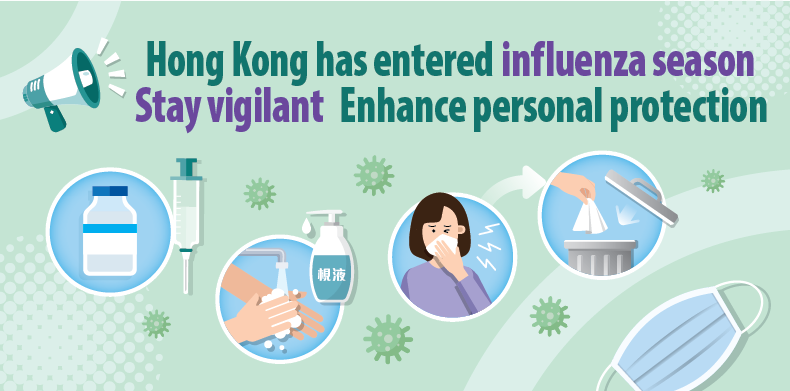
China Daily’s new project “Make it Simple” explores the hottest topics in Hong Kong, going beyond the headlines. The second episode centers on the recent upsurge of seasonal influenza both within and outside the city.
1. Red flags: What is the current flu situation?
• Hong Kong had recorded 199 severe adult flu cases, some of which resulted in death, in the first four weeks of this influenza season, which began in early January.
• As of February, increased influenza activity has been recorded in many countries, particularly in Japan, South Korea, the United States, and Canada.
• Typical symptoms include sudden onset of fever, cough, sore throat, runny nose, muscle and joint pain, fatigue and headache; self-recoverable usually within two weeks.
• Incubation period: one to four days.
2. Don’t take it lightly
• Flu is worse than a common cold.
• New strains appear from time to time and need regular vaccinations.
• Can cause serious complications in high-risk people, such as pneumonia, sepsis, and encephalitis, leading to hospitalization and even death.
3. What is the best treatment?
• Stay at home, rest, drink plenty of water, and use antiviral agents properly under prescription if necessary.
• For high-risk individuals or if symptoms worsen, seek professional medical advice immediately.
4. What’s the best way to prevent influenza?
• Mainly transmitted through droplets and particles, hands that have become contaminated with viruses touching mouth, nose, or eyes.
• Annual vaccination — the most effective protection measure:
o Get jabbed early as vaccines need about two weeks to take effect.
o Free or subsidized seasonal influenza vaccination is available for Hong Kong residents aged 6 months or above (visit the website of the Centre for Health Protection — www.chp.gov.hk — for details).
• Good hygiene
o Wear surgical masks.
o Wash and dry hands regularly, avoiding touching eyes, nose, and mouth.
o Follow a healthy lifestyle.
o Clean and disinfect living environment regularly.
o Good indoor ventilation.
o Avoid close contact with infected people.
5. More to know: Precautions on trips
• Closely monitor influenza situations of travel destinations.
• Prepare influenza virus antigen rapid testers and pack necessary medications (on doctors’ advice).
• Record the emergency hotlines and locations of hospitals in the destination and seek medical attention immediately when severe symptoms arise.
• Install translation software on phones to ensure basic and clear communication with local medical practitioners when abroad
Sources: Online discussions, articles, and media reports related topics, found by Lu Wanqing and Wu Kunling.


